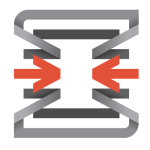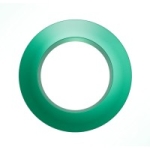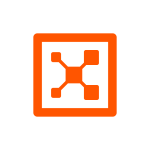What is our primary use case?
Most security solutions traditionally have been protecting physical assets within an environment, or reliance on an inline hardware appliance. CloudGuard takes the security controls that were previously packaged with physical appliances in mind and extends them to the virtual infrastructure.
It's an add-on capability to an existing virtual infrastructure, such as an AWS, Azure, or even on-premise solutions. It adds a security layer on top of your existing infrastructure with zero latency.
We're hosting it ourselves on our hypervisors, as well as starting to do so in some of our private cloud instances. It's solely managed by us with a pair of consolidated management servers.
How has it helped my organization?
This virtual platform is unique in the way that it augments our existing physical controls through a centralized management system. When many organizations, like ours, went from physical servers to virtual servers and desktops, there was a blind spot there. We no longer had visibility into what was happening within our environment, and that extended to the cloud as well where it's difficult, if not impossible, to introduce hardware — firewalls and other security protection. This solution takes what is still required around intrusion detection/prevention, anti-malware, and other threat protection capabilities and extends it to all of our virtual assets, regardless of where they live, in a private or public cloud.
CloudGuard has closed a significant gap that we had in our environment. We were searching for the right solution for many years, to gain visibility into, and protection of, all of our virtual asset servers, desktops, and workloads. There have been other products throughout the years that provided a similar type of technology, but had we purchased and move forward with those, we would have seen a degradation of performance within our environment, as traffic would have to be what's considered "hair-pinning" and going in and out of the virtual environment to another either virtual or physical appliance. We intentionally delayed our purchase of this kind of solution because we were not satisfied with that architecture. We weren't willing sacrifice performance degradation on our network. That's really the big benefit of the CloudGuard, it is able to live within the same virtual instances as the other virtual assets and workloads.
What is most valuable?
What's most valuable to me is that it's a contiguous solution that aligns well with the components that we've relied on and trusted from a traditional hardware, firewall, and unified threat management system. My engineers and analysts don't have to learn another platform. We have already entrusted our security controls to Check Point for perimeter and physical security, and now we can do so at the virtual layer as well, which is key to us. It really augments their current stack of capabilities. It all aligns well under their umbrella of their Infinity architecture, which we have adopted.
What needs improvement?
It's meeting our needs at this time. If I could make it better, it would be by making it more standalone. That would be beneficial to us. I say that because our current platform for virtualization is VMware. The issue isn't any fault of Check Point, it's more how the virtualization platform partners allow for that partnership and integration. There has to be close ties and partnerships between the vendors to ensure interoperability and sup-portability. There is only so far that Check Point, or any security vendor technology can go without the partnership and enablement of the virtualization platform vendor as it relies on "Service Insertion" to maintain optimal performance.
We are frequently in contact with Check Point's Diamond Support, Product Development Managers as well as their sales team, as we look to keep apprised of where the product ius and should be going. Most of our requests have been around our physical assets, the physical UTM devices — Check Point Maestro, as an example — as well as their endpoint systems. There has not been anything at this time where we've said, "We wish CloudGuard did X differently." CloudGuard, in my opinion, having recently talked with them, is continously improving and is incorporating some of their recently acquired capabilities, such as Dome9 cloud compliance. Those are areas I have been evaluating and looking to add to my environment. My preference would be that it be included in my CloudGuard subscription licensing, and not an add-on; But that's the only thing that I could say that would be beneficial to us as an enhancement to the system.
For how long have I used the solution?
We've been using Check Point CloudGuard IaaS for about three years.
What do I think about the stability of the solution?
The stability has been great. There has been no concern at all. We have not had any known downtime or issues to speak of.
What do I think about the scalability of the solution?
Scalability was well thought out and designed. I've spoken about this at several Check Point CPX events. Throughout the instances that we have, if a single Check Point CloudGuard instance is overloaded due to event load, it will intelligently redirect that workload to another service on a different host, so that it's not delaying the interrogation of the traffic.
It's being used throughout our environment. We will increase usage only when we augment our cloud offerings.
Users, in this case, are the IT security and networking folks that support it and rely on these controls being effective. They analyze the output of the event interrogation. Right now, I have three resources supporting CloudGuard. I don't have dedicated staff for maintaining the solution. They're shared resources who work on other network and security devices. From an operational standpoint, it's a fraction of an FTE that is required.
How are customer service and technical support?
Check Point's technical support for this solution, overall, is very good. Check Point has architected this solution well enough that it has similar, if not the same, code base as the physical devices. It doesn't appear to be a big lift and can leverage the same support engineers for CloudGuard as we would have for our physical devices.
Which solution did I use previously and why did I switch?
We never found a solution we were satisfied with, and which would not affect our overall operational performance.
How was the initial setup?
I was not personally involved in the initial deployment, as I'm the CISO of the organization, but I was closely engaged with my engineers. The CloudGuard portion of our installation and setup was extremely simple, in comparison to the integrated component on the virtualization side of things. Check Point made it extremely easy to deploy and configure, especially because it's done from our consolidated management devices that we're already familiar from our physical unified threat management devices.
The delays in deployment were mostly due to the virtualization side of things. If it was just CloudGuard alone, we probably could have had that done in about six to eight weeks. But there were several starts and stops due to the accompanying VMware component, which has really extended, I hate to say it, over 12 months.
In terms of our implementation strategy, the intent is that every host in our environment that serves up virtual assets and workloads would have an instance of CloudGuard installed on it. And then all respective HTTP/HTTPS traffic would be routed through Check Point for visibility and interrogation, so that if any of its threat controls determined that an asset was rogue or infected due to some malicious insider or outsider, it would automatically quarantine that device. We have tested that and it worked successfully.
What about the implementation team?
We installed it with the help of Check Point-badged engineers. To be honest, we had to ask for a new lead engineer. And once that occurred, the project implementation went very smoothly.
What was our ROI?
ROI is a very difficult metric in the security space. We've been fortunate that we haven't had an event in which we would say that because of CloudGuard our MTTD and MTTR was low and we quickly identified and stopped a malicious adversary.
However, we are now more confident in our security controls and visibility. CloudGuard plays a significant role in our SOAR (Security Orchestration Automation and Response) initiative. We can now automate the isolation of an infected machine with the help of CloudGuard. This in itself is the best ROI as it doesn't require manual intervention to detect and respond.
What's my experience with pricing, setup cost, and licensing?
The pricing and licensing of this is much more digestible than that of its hardware equivalent. I've found, in times past, especially on the hardware side of things, that the licensing support and maintenance could be very daunting to understand. If that has scared folks away in the past, CloudGuard is much simpler.
Licensing is simply by the number of hosts that you are looking to protect within your environment. It makes it much easier to ensure that you are covering your environment.
If you are not already a Check Point customer for the UTM and the SmartEvent, there likely would be an additional cost, beyond the standard CloudGuard licensing, if you wanted the reporting. It's a unique instance where we already had an established infrastructure of Check Point devices on our network, and then we added CloudGuard to it. Had we started with CloudGuard, and only had virtual assets to protect, it is possible that there would be additional cost. I would urge folks to look into what it would cost to add the reporting capabilities and log event management.
Which other solutions did I evaluate?
We looked at offerings from Cisco (ACI), Illumio and Gigamon. This was about three-and-a-half years ago.
The main differentiator, and the reason we selected Check Point, is how it integrated with our virtualization platforms. It lived there natively. It had the least amount of overhead to interrogate the traffic within our environment. It also aligned well with our consolidated reporting and management solutions that we have come to rely on from our Check Point physical UTM devices.
What other advice do I have?
Intently know and understand the integration points within your environment. It is a great security solution, but understand how integrated it is with, and what level of partnership there is between, Check Point and the virtualization platform that you're looking to add it on top of.
The biggest lesson I have learned is that the Check Point CloudGuard features, although good, are only as good as the accompanying virtual platform and its level of integration. I have to be honest: Overall, this is the ideal solution for us and our organization, but it is slightly more complex. There are newer competitive products that take a different stance, that are agent-based. We did not want — and this is another key distinction — a solution that wasn't agent-based in which we had to deploy a piece of software on each and every virtual endpoint. Having this done at the hypervisor level definitely was the right strategy for us. However, the lesson learned, with this type of solution, is that it is very important to understand the nuances of your virtualization platform and what is required on that side to enable the Check Point CloudGuard.
You're relying heavily on the partnership and the capabilities of that virtualization platform. Going in, understand the degree of that partnership and the respective road maps of each, because the CloudGuard solution is only as good as the capabilities it has with the virtualization platform. That's especially true for large enterprises that want to constantly move workloads around and have their rule set follow in an event where they're having to ensure that systems are always alive and always protected.
Which deployment model are you using for this solution?
On-premises
Disclosure: PeerSpot contacted the reviewer to collect the review and to validate authenticity. The reviewer was referred by the vendor, but the review is not subject to editing or approval by the vendor.



















